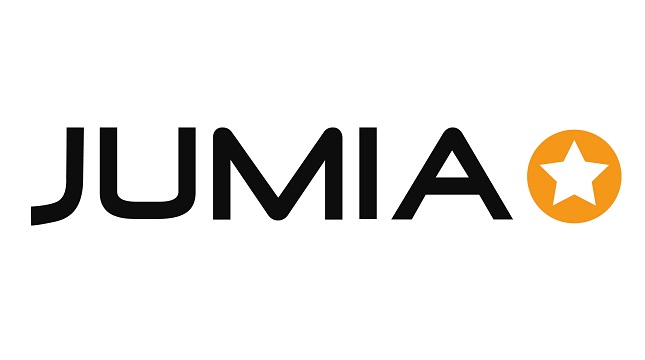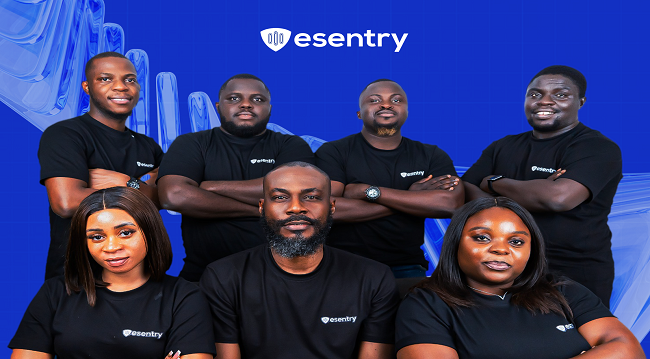E-Business
UNICCON Group Launches SmartAfri Labs to Drive Africa’s Inclusion in Blockchain

The UNICCON Group of Companies has launched its blockchain technology – SmartAfri Labs, to drive the inclusion of Africans and adoption of the specialized technology in the region.

Speaking during the unveiling, the Chairman of UNICCON Group, Dr. Chuks Ekwueme, shared insightful statistics to illustrate the poor inclusion and adoption of the blockchain ecosystem in Africa.
“Africa has less than a 5 percent stake in the projected $1.1 trillion the industry promises. We have created technology and platforms to drive inclusion by up to 25 percent by the year 2025. Our VR headsets for example are more affordable, and will not exclude poor Africans from using the technology.
“This is inclusion. It is erroneous to view blockchain technology as being crypto. It is much more than that, and that notion should be vacated. We have built this platform, which is a fusion of Web 2.0 and 3.0 and we are keen on being key participants in the 4IR. There is a huge market in our NFT marketplace as Nigerians and Africans from the creative and other industries can tap into it to generate wealth and add to the GDP.”
The novel product, which is the first African blockchain technology, consists of SmartAfri Chain (blockchain node), NFT Marketplace (Create and sell NFTs), SmartAfri Verse (Metaverse), SmartAfri eMarket (fusion of 2.0 and 3.0) and UNICCON VR(locally made and subsidized headsets). The project seeks to increase stakes for Africans, encourage more developers to get into the niche, and overall, to drive massive inclusion.
Speaking during the welcome address, Kehinde Ake, General Manager, UNICCON, stated that SmartAfri Labs offers exceptional levels of security, transparency, and efficiency, granting users the ability to transfer assets, save data, and carry out smart contracts in a decentralized and fraud-proof network.
“We have created this technology to allow Africans to stand tall, raise their heads, spread their shoulders, and take giant strides in an ecosystem that was once alien to them,” he said.
Keynote speaker John Paul Nwobodo, who is an industry investment analyst with Adaverse, spoke about the monumental impact of blockchain technology in a wide variety of industries.
Using the banking industry as a point of reference, “according to the 2021 World Bank report, 66 percent of Nigerians are unbanked, and the banked are being recycled by existing financial services providers.
The cost of cross-border remittance is very high and using blockchain can help reduce these numbers, making cross-border remittances cheaper and defying geographical barriers.”
The company’s Chief Technology Officer (CTO) Eval Esege, presented SmartAfri Labs and took the audience on an experiential journey of what it does, how it works, and its many bundled benefits. “SmartAfri Labs was borne out of the need to create a blockchain ecosystem that represents African values and culture. We have set up a partnership opportunity available from today to allow those who resonate with our vision to join us on this journey.”
The launch had in attendance, representatives from the National Information Technology and Development Agency (NITDA), the Nigerian Computing Society (NCS), Adverse, the blockchain community, and the private sector.
Chris Ebosie, Group General Manager at Uniccon, closed the event with a vote of thanks to appreciate the management, staff, consultants, speaker, guests, press and everyone who contributed to the success of the event. A larger number of the audience joined virtually via YouTube, Zoom, Instagram, Twitter, and Discord.
UNICCON Group has been at the forefront of creating innovative tech solutions to solve problems in Africa. Recall that the company launched the first African humanoid in December 2023. It has also signed an MoU with NITDA, and is currently supporting the Federal Government in deepening digital literacy in Nigeria. This move will see the realization of 95 percent literacy in the country by the year 2030.
E-Business
Jumia Tech Week 2026 Begins with Tech Deals on Smartphones, Electronics, and Everyday Technology

Jumia Nigeria has announced the launch of Jumia Tech Week 2026, a two-week campaign offering customers access to discounted technology products across key categories, including smartphones, computing, home entertainment, and wearable devices.

Starting from March 2 to March 15, Jumia Nigeria’s Tech Week 2026 is themed ‘Tech Products for Less’ – a deliberate commitment by the e-commerce giant to drive down the cost of technology products for Nigerian consumers. The campaign offers significant price reductions across key product categories, enabling more Nigerians to access the devices they need at prices that reflect the company’s dedication to affordability and consumer value.
Jumia Tech Week will feature deals across a wide range of product categories, including mobile phones, computer systems and accessories, televisions and audio equipment, gaming products, home appliances, portable power solutions, health technology,, and wearable devices.
Customers will also have access to curated recommendations, including top smartphone deals, must-have accessories, gaming essentials, and home technology upgrades.
According to Temidayo Ojo, CEO of Jumia Nigeria, the campaign reflects Jumia’s broader commitment to making everyday technology more accessible to Nigerians.
“Technology has become an essential part of everyday life, and access to the right devices enables more people to participate fully in the digital economy,” said Ojo. “At Jumia, we remain focused on expanding access and improving the shopping experience as we continue to build Nigeria’s everyday retail destination.”
The campaign will include a range of customer engagement initiatives such as flash sales, brand days, anchor deals and interactive activities designed to enhance the online shopping experience.
Special highlight periods, described as Explosion Days, will take place on March 6 and March 13, featuring limited-time offers across selected technology categories. Customers will also be able to participate in interactive activities, including product-based games, treasure hunts,, and live shopping sessions during the campaign period.
The campaign will feature participation from leading brands including Oraimo, Silver Crest, Samsung, Ecoflow, Nivea and Aeon, offering customers a wide selection of technology, household and lifestyle products. Early access promotions already begun during the teaser period from February 16 to March 1, allowing customers to preview selected deals ahead of the official launch.
Jumia Tech Week forms part of the company’s broader strategy to expand e-commerce adoption by improving access to essential products and enhancing the customer experience across its platform. As Nigeria’s e-commerce market continues to grow, Jumia remains focused on strengthening its product assortment, logistics capabilities, and digital experience to serve customers better nationwide.
Customers can participate in the campaign by using the Jumia mobile app or visiting the Jumia website and following the conversation online using #JumiaTechWeek.
E-Business
Kaspersky Discovers New Phishing Campaign Exploiting Google Tasks Notifications to Steal Corporate Credentials

Kaspersky has uncovered a new phishing scheme that abuses legitimate Google Tasks notifications to trick corporate users into revealing corporate login credentials.

By leveraging Google’s trusted @google.com email domain and notification system, attackers bypass traditional email security filters and exploit users’ trust in familiar services.
In this campaign, victims receive an authentic-looking notification from Google Tasks with the subject line “You have a new task.” The message creates the illusion that the recipient’s company has adopted Google’s task management tool, pressuring them to act quickly. The notification often includes elements of urgency, such as a high-priority flag and a tight deadline, to prompt the victim’s immediate response.
Upon clicking the embedded link, users are directed to a fraudulent form disguised as an “employee verification” page, where they are asked to enter their corporate credentials under the pretense of confirming their status. These stolen credentials can then be used for unauthorised access to company systems, data theft, or further attacks.
“Google’s vast ecosystem of services gets exploited by scammers. The scheme with Google Tasks is part of a broader trend observed before and continuing into 2026, where cybercriminals misuse legitimate platforms to distribute scams and phishing.
Notifications originating from legitimate domains naturally evade many spam and phishing filters, while the social engineering aspect – making it seem like an internal company process – lowers the victim’s guard,” comments Roman Dedenok, Anti-Spam Expert at Kaspersky.
E-Business
esentry 2025 Report Shows Healthcare, Financial Services and Telecoms as Staging Grounds for Increased Cyberattacks in Africa

Cyber adversaries targeting African organisations are increasingly shifting away from opportunistic attacks toward deliberate, sector-specific campaigns aimed at the continent’s most critical digital infrastructures, according to the esentry 2025 Annual Report released by esentry, Lagos-based Africa’s leading indigenous Managed Security Service Provider (MSSP).

The report identifies healthcare, financial services, and telecommunications as the primary staging grounds for high-velocity cyberattacks, reflecting a growing focus on sectors that underpin economic stability, public welfare, and digital connectivity across Africa.
The findings are drawn from one of the largest cybersecurity datasets analysed in the region. Over the course of 2025, esentry processed more than 31 billion security events, generating 3.5 million alerts and successfully blocking over 15,000 malicious attempts. This monitoring scale shows that, while traditional financial institutions remain a core target, the threat landscape has expanded to include digital lending platforms, healthcare systems that store sensitive personal data, and telecom operators responsible for national and regional connectivity.
Within the healthcare sector, the report highlights ransomware as the most acute risk, with attackers frequently exploiting exposed Remote Desktop Protocol (RDP) services to compromise patient data and disrupt essential medical operations. In financial services, organisations are facing a surge in credential abuse, insider-related threats, and info-stealer malware designed to enable fraud and unauthorised access. Telecommunications providers are increasingly targeted by highly tailored phishing campaigns and attacks on exposed web services, which aim to harvest credentials and compromise customer data.
Commenting on the findings, Gbolabo Awelewa, Chief Business Officer at esentry, said the nature of cyber threats across Africa has evolved significantly. “The threats we are seeing today are deliberate, informed, and carefully tailored to local enterprises. Attackers are exploiting trusted access and moving quietly within networks, which makes early detection critical. Our coordinated cybersecurity model, spanning Defence, Intelligence, Offence, and Security Engineering, allows us to combine scale, speed, and deep contextual insight to detect and neutralise threats before they escalate,” Awelewa said.
A defining trend identified in the report is the shift from overt system exploitation to the abuse of legitimate access. By leveraging compromised credentials and ‘living-off-the-land’ techniques, attackers can blend into routine enterprise operations and significantly delay detection. This approach has compressed the attack lifecycle, enabling adversaries to move from initial access to full operational impact in fewer than 15 days.
To counter this acceleration, the report emphasises the importance of early detection and automated response. esentry says it currently contains low-complexity incidents in under 90 seconds, using a combination of structured threat hunting and centralised telemetry to anticipate and absorb attacker pressure rather than reacting after damage has occurred.
As African organisations continue to digitise, the esentry 2025 Annual Report positions itself as a critical reference point for understanding the continent’s evolving cyber threat environment. The report concludes that protecting Africa’s digital trust will require a shift away from fragmented security tools toward disciplined, coordinated defence frameworks, what esentry describes as a unified Phalanx formation.

 E-Financial1 day ago
E-Financial1 day agoMutual Benefits Assurance Reaffirms Full Regulatory Compliance, Enhanced Governance

 E-Financial1 day ago
E-Financial1 day agoIran-Israel-US Conflict and CBN’s FX Gains: A Stress Test for Nigeria’s Monetary Stability

 General News1 day ago
General News1 day agoSERAP Asks FCCPC to Investigate Google, Meta, Others over Alleged Rights Abuses

 General News1 day ago
General News1 day agoJAMB Uncovers AI-Driven Fraud Targeting UTME Candidates, Warns Parents

 News1 day ago
News1 day agoFlashChange CEO, Bidemi Oke, Urges Startups to Build Strong Governance Structures Early

 News1 day ago
News1 day agoTeamApt, Awabah Partner to Boost Pension Drive for Nigerians

 General News1 day ago
General News1 day agoCapelli Institute Commits to Advancing Trichology in Nigeria

 E-Financial1 day ago
E-Financial1 day agoReps Mull Commission to Regulate Fintech Operations

















